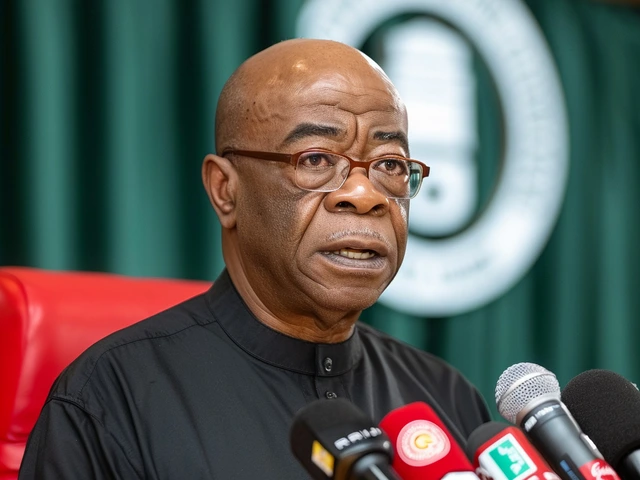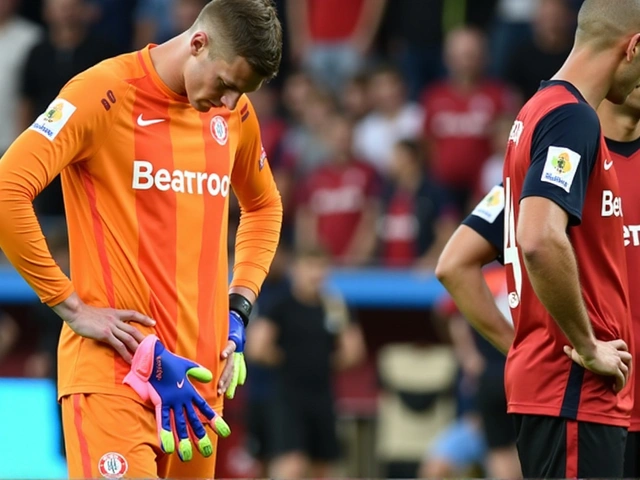Tigran Gambaryan's Detention and Absence of Due Process in Nigeria
Tigran Gambaryan, a name many haven’t heard yet but should be concerned about, is at the heart of a growing diplomatic and human rights issue. This U.S. citizen, who is also an executive at the prominent cryptocurrency exchange Binance, has now been confined in a Nigerian prison for 225 days. The most troubling aspect of this situation? Gambaryan’s detention has occurred without any semblance of due process.
It’s baffling to consider that an individual, let alone an executive of an internationally recognized company, could be held for such an extended period without clear charges or a trial. The incident has thrown a dark shadow over the Nigerian judicial system, raising significant concerns about its transparency and fairness. Such a prolonged imprisonment without due process inevitably results in numerous questions: What are the actual charges, if any? Why has there been no trial? And most importantly, where is the accountability?
Erosion of Rights and International Implications
The ramifications of Gambaryan's detention extend far beyond his personal suffering. His case is seen by many as a blatant violation of human rights, where he has been deprived of liberty without being afforded a fair opportunity to respond to accusations. This is not just an isolated incident; it’s a significant blemish on Nigeria’s reputation regarding its adherence to international human rights standards.
Moreover, Gambaryan’s health is deteriorating. This has prompted the U.S. government to step in, bringing another layer of complexity to the matter. Diplomats are not just concerned about one of their citizens; they are wary of the broader implications. How does one ensure fair treatment of their nationals abroad when such violations occur? The U.S. has been vocal about their demand: immediate release of Gambaryan due to health concerns and adherence to proper judicial procedures.
The Broader Issue of Diplomacy and Fair Treatment
What stands out starkly in this case is the lack of international cooperation. Dual-layered diplomatic efforts are often needed in such situations, where countries must ensure their citizens are provided basic rights when detained abroad. This case brings into sharp focus the challenges faced by individuals trapped in the labyrinthine legal systems of foreign countries without clear charges or trial.
Gambaryan’s case is not just an isolated incident but a lens through which we can view the broader challenges of international law and diplomacy. It raises questions about global standards of judicial fairness and transparency. How can countries like the U.S. ensure that other nations uphold these standards? What mechanisms are in place to protect citizens from being used as pawns in diplomatic games?
Calls for Transparency and Reform
The demand for Gambaryan’s release underscores a crucial need for transparency and judicial reform in Nigeria. His imprisonment for 225 days without a proper legal process is a sizable concern that cannot be underplayed. The lack of transparency in his case sets a dangerous precedent and indicates potential systemic issues within the Nigerian judicial system.
Addressing these concerns is not just about justice for Gambaryan but about reinforcing the importance of a free and fair judicial system. There’s a clear and urgent need for reform to ensure that no individual – regardless of their nationality – faces such dire circumstances. Implementing robust measures and ensuring accountability can serve as fundamental steps towards achieving this reform.
The U.S. Government's Intervention
As Gambaryan's health concerns escalate, the U.S. government’s intervention becomes even more critical. It’s a delicate situation. On the one hand, there’s the need to ensure the safety and well-being of their citizen. On the other, there's the need to navigate the intricate diplomatic relations between two countries.
Governments often rely on diplomatic channels to voice their concerns and push for action. In this case, the U.S. is putting significant pressure on Nigerian authorities to adhere to international human rights standards and release Gambaryan. This intervention underscores a fundamental duty of nations to protect their citizens and ensure they are treated fairly abroad.
Gambaryan: A Symbol of Judicial Struggles
Gambaryan’s story is not just his own; it’s reflective of a broader struggle faced by many individuals detained in foreign countries without clarity or recourse. His detention serves as a significant case study in understanding the intricacies and failings of international judicial cooperation and human rights adherence. His case will likely be cited in future discussions surrounding diplomatic relations and the justice system reform in Nigeria.
The importance of addressing and resolving such cases cannot be overstated. They serve as crucial reminders of the ongoing need for justice and transparency in legal systems worldwide. The global community must collectively strive to ensure that every individual, regardless of their nationality, is treated with fairness and dignity.
The Impact on Binance and Cryptocurrency Regulation
Beyond the immediate concerns surrounding Gambaryan’s detention, this incident could have broader implications for Binance and the cryptocurrency industry as a whole. As an executive of one of the world’s leading cryptocurrency exchanges, Gambaryan’s detention brings into question the regulatory challenges and risks associated with operating in various jurisdictions. How does this impact Binance’s operations and its approach to international regulations? What measures are necessary to safeguard their executives and employees from such risks?
This situation may prompt cryptocurrency companies to re-evaluate their international strategies and push for greater regulatory clarity and protections in the countries they operate in. It also highlights the need for global regulatory frameworks that ensure fairness and transparency in the treatment of individuals involved in the industry.
Moving Forward: Ensuring Justice and Fair Treatment
Gambaryan’s case is a stark reminder of the ongoing struggle for justice and fairness in the global judicial system. It’s essential for nations, industries, and individuals to work together to address these issues and ensure that no one is subjected to prolonged detention without due process. The call for Gambaryan’s release is not just about one individual’s freedom; it’s about upholding the values of justice, transparency, and human rights that are fundamental to a fair and just society.
As the world watches, the outcome of this case could set a significant precedent for how similar situations are handled in the future. It’s a critical moment for Nigeria to demonstrate its commitment to upholding international human rights standards and for the global community to reinforce the importance of fair judicial processes. The journey towards justice and fairness is ongoing, and each step taken in this direction strengthens the foundation of a just and equitable world.






Write a comment